A blockchain address is your unique identifier in the cryptosphere, akin to a bank account number. It allows you to send and receive cryptocurrencies securely. Generated from your public key, the address varies in format depending on the currency, like Bitcoin or Ethereum. You need to keep your private key safe, as it's essential for accessing your funds. This address also helps verify ownership and track your transaction history. Just remember, entering the wrong address can lead to losing your assets permanently. Stick around, and you'll find out more about how blockchain addresses work and their importance in cryptocurrency transactions.
Key Takeaways
- A blockchain address is a unique identifier used for sending and receiving cryptocurrency transactions, similar to a bank account number.
- It consists of a public key, which is visible, and a private key, which remains confidential to secure digital assets.
- Addresses vary in format depending on the cryptocurrency, such as '1' for Bitcoin and '0x' for Ethereum.
- Transaction history can be tracked through blockchain explorers, enhancing transparency and ownership verification.
- Ensuring accurate input of addresses is crucial, as mistakes can lead to irreversible loss of funds.
Key Components of Blockchain Addresses
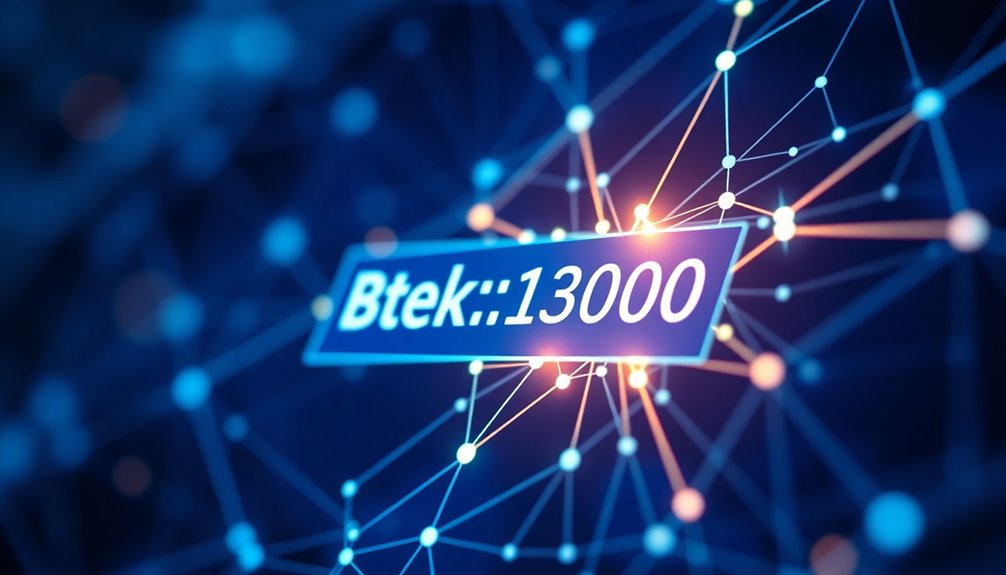
When you plunge into the world of blockchain, understanding the key components of blockchain addresses is essential. Each address acts as a unique identifier, allowing you to send and receive cryptocurrency securely.
It consists of a public key, visible to all users, and a private key, which you keep confidential to protect your digital assets. These addresses are made up of alphanumeric characters and vary by cryptocurrency; for example, Bitcoin addresses start with '1', '3', or 'bc1', while Ethereum addresses begin with '0x'.
Importantly, blockchain addresses often include a checksum for error detection, ensuring accuracy when initiating transactions. This transparency helps you track your cryptocurrency wallet's transaction history and balances effectively.
Wallet Address Significance in Transactions
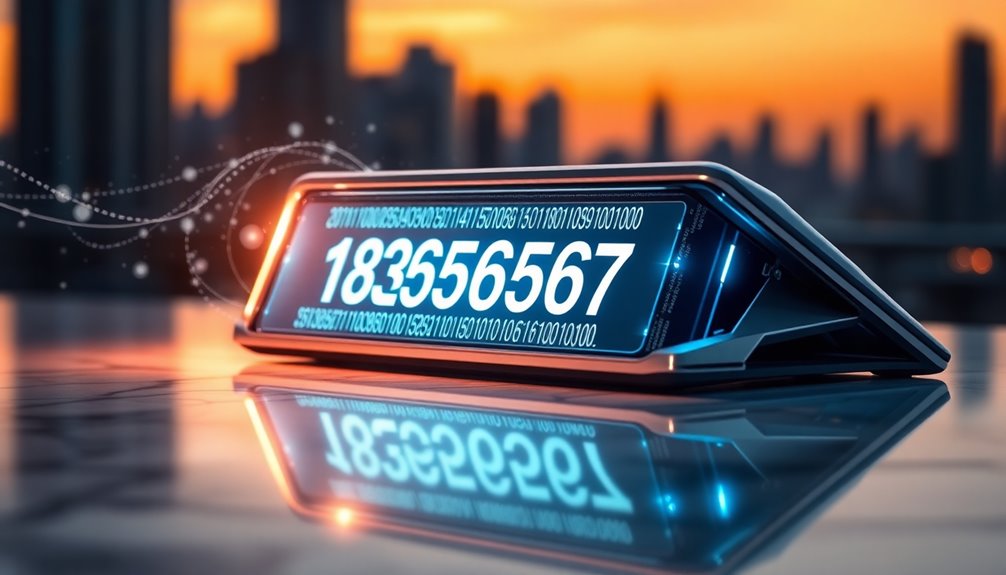
Understanding the significance of a wallet address in transactions is essential for traversing the cryptocurrency landscape. A wallet address acts as a unique identifier that allows you to send and receive cryptocurrencies, similar to a bank account number.
It's vital to input the recipient's wallet address accurately; even a small mistake can lead to irreversible loss of funds. Wallet addresses not only verify ownership of digital assets but also enable you to monitor transactions and track your transaction history through blockchain explorers.
The structure of wallet addresses varies by cryptocurrency, with Bitcoin and Ethereum using different formats. This diversity enhances compatibility within the blockchain ecosystem, ensuring seamless cryptocurrency transactions while safeguarding your public and private keys.
Public Key Transformation Process

The public key transformation process is essential for creating a secure and functional blockchain address. It starts with generating a private key, a randomly chosen number that lays the groundwork for your public key.
You derive the public key from the private key using cryptographic algorithms, like the ECDSA commonly used in Bitcoin and Ethereum. Next, the public key undergoes hashing through algorithms such as SHA-256 and RIPEMD-160 to produce a shorter version.
A checksum is then added to this hashed public key to enhance accuracy and prevent errors in address generation. Finally, the blockchain address is encoded using formats like Base58 or Base64, ensuring it's user-friendly and compatible with various blockchain networks.
Pros and Cons Overview
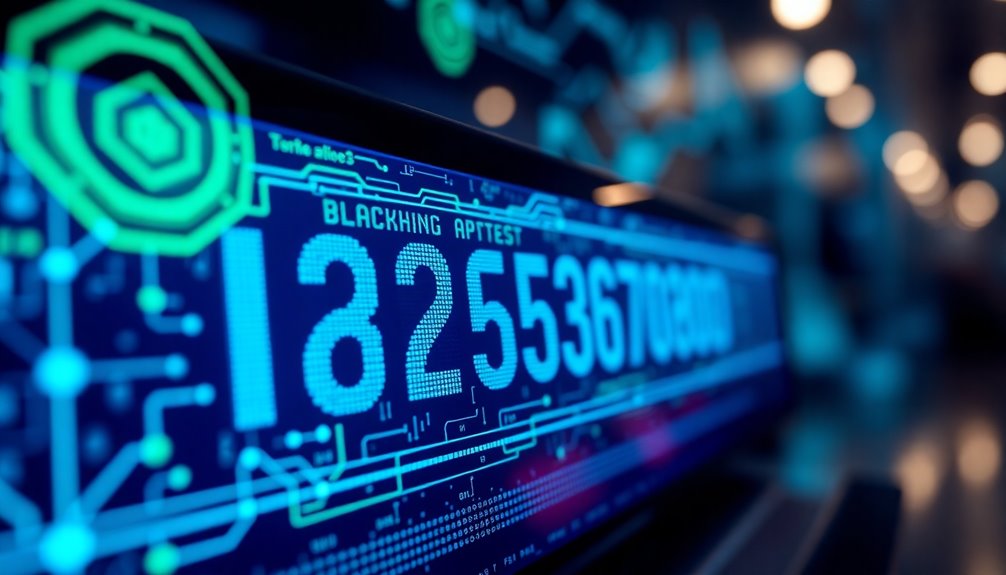
Blockchain addresses come with a mix of advantages and disadvantages that are important to contemplate.
On the plus side, these unique wallet addresses enable secure transactions and enhance financial inclusivity by allowing you to send and receive cryptocurrencies directly, without intermediaries. They provide proof of ownership and make tracking transaction history straightforward.
However, you must be cautious, as entering an address incorrectly can lead to irreversible loss of funds. The public nature of blockchain means your transaction history is visible to anyone, which could compromise your privacy.
Additionally, if you share addresses publicly, revealing private keys can lead to unauthorized access and theft of your digital assets.
Always weigh these factors when using blockchain addresses.
Address Types Overview
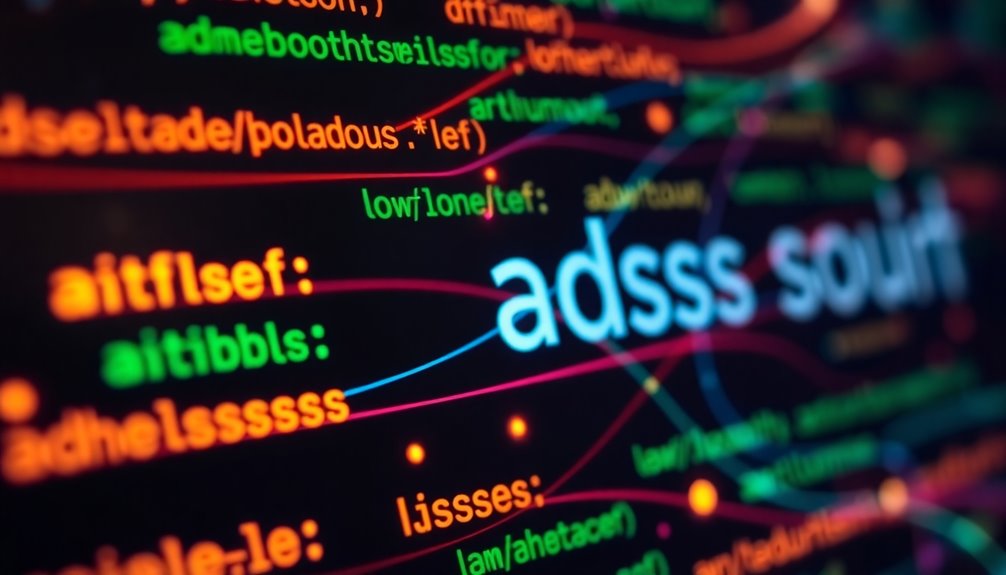
When exploring the world of cryptocurrencies, you'll encounter two primary types of addresses: wallet addresses and contract addresses.
Wallet addresses are your unique identifier for managing and storing cryptocurrency. They're generated from public keys, allowing you to send and receive funds easily. Public addresses can be shared safely, while private keys must remain confidential to protect against theft.
On the other hand, contract addresses identify specific smart contracts deployed on the blockchain. Each cryptocurrency has distinct address formats; for instance, Bitcoin addresses may start with '1', '3', or 'bc1', whereas Ethereum addresses begin with '0x'.
Both address types play vital roles in transactions and decentralized applications, ensuring transparency and security on the blockchain.
Security Vulnerabilities in Wallets
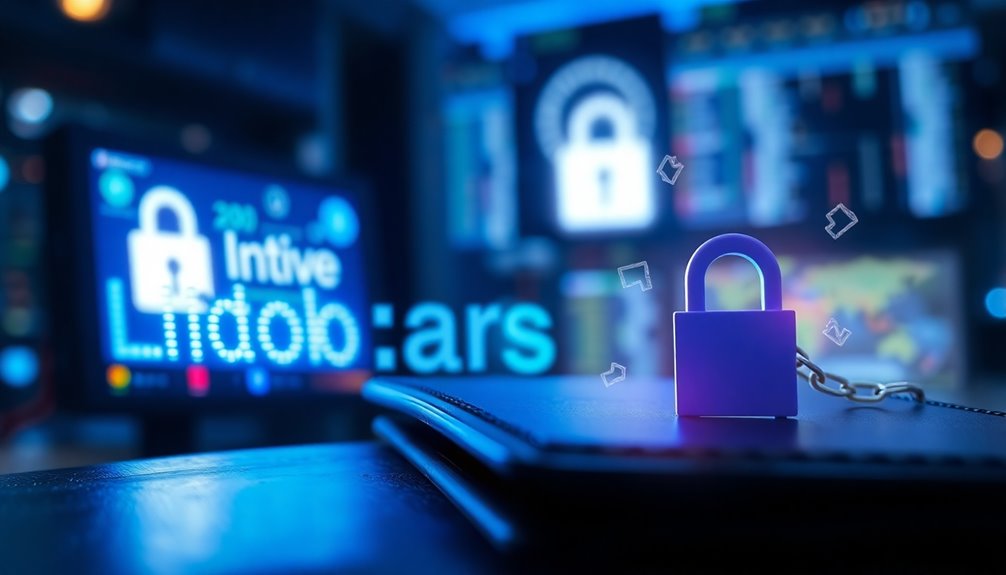
Wallet addresses aren't just unique identifiers; they come with considerable security responsibilities. One major risk is the exposure of private keys, leading to unauthorized access and theft of your digital assets.
Phishing attacks often target users, tricking them into revealing their private keys through deceptive emails and websites. To bolster security, implementing two-factor authentication (2FA) adds an essential layer of protection.
Consider using hardware wallets, as they keep private keys offline, safeguarding them from online threats. Regularly updating your wallet software and being cautious with public addresses can help mitigate risks from malware and scams.
Emerging Wallet Address Standards

Many users find complex alphanumeric wallet addresses challenging and prone to errors. Emerging wallet address standards like the Ethereum Name Service (ENS) and Unstoppable Domains are here to help.
These innovations transform traditional wallet address formats into easy-to-remember names, greatly enhancing user experience when receiving cryptocurrencies. ENS operates on the Ethereum blockchain and supports various decentralized applications (DApps), allowing you to map your wallet address to a unique identifier used as a domain name.
Unstoppable Domains also provides blockchain-based domain names, enabling cross-platform transactions without centralized control.
Regularly Update Wallet Software

To safeguard your digital assets, it's vital to regularly update your wallet software. Each update often includes important security features that fix vulnerabilities, protecting your private keys and wallet addresses from hackers.
By staying current, you enhance compatibility with new blockchain features, ensuring smooth transactions and interactions with smart contracts. This proactive approach also helps in identifying potential issues before they escalate, allowing for timely interventions. Additionally, embracing new technologies can lead to discovering innovative stuck bitcoin transaction solutions, making the overall experience more seamless for users. Ultimately, staying informed not only maximizes efficiency but also contributes to a safer and more reliable blockchain ecosystem.
Whenever possible, enable automatic updates to minimize the risk of using outdated software that could jeopardize your wallet's security.
Always verify the authenticity of any updates by downloading them directly from the wallet provider's official website or other trusted sources. This practice helps you avoid potential malware risks that could compromise your digital assets.
Regular updates keep your wallet software robust and secure, allowing you to focus on your transactions without worry.
Frequently Asked Questions
How Do I Get My Blockchain Address?
To get your blockchain address, you'll first need to create a cryptocurrency wallet.
You can choose between hardware wallets like Ledger or software wallets like MetaMask. During setup, a unique wallet address will be generated for you from your public key.
Each cryptocurrency has a specific format, so make sure you note it down correctly. You can find your address prominently displayed in your wallet interface for sending and receiving funds.
What Is an Example of a Blockchain Address?
You might think blockchain addresses are complicated, but they're quite simple once you get the hang of them.
For example, a Bitcoin address looks like this: "1A1zP1eP5QGefi2DMPTfTL5SLmv7DivfNa."
On the Ethereum network, an address starts with "0x," such as "0x32Be343B94f860124dC4fEe278FDCBD38C102D88."
Each address is unique, ensuring secure and transparent transactions while keeping your identity anonymous.
Is a Blockchain Address the Same as a Wallet Address?
No, a blockchain address isn't the same as a wallet address.
While wallet addresses are specifically for sending and receiving cryptocurrencies, blockchain addresses can also refer to contract addresses that identify smart contracts.
You'll use wallet addresses for transactions, but contract addresses serve a different purpose, allowing interaction with self-executing contracts.
Understanding this distinction helps you navigate the blockchain ecosystem more effectively and guarantees you're using the right type of address for your needs.
How Do I Trace a Blockchain Address?
Tracing a blockchain address can be a thrilling task! First, find a blockchain explorer online.
Enter the address you want to trace, and you'll uncover a wealth of information, from transaction totals to timestamps. You can even filter results to see specific dates or types of transactions.
Just remember, while addresses are pseudonymous, combining data from different sources might expose identities. So, tread carefully and enjoy your exploration!
Conclusion
In the world of blockchain, your wallet address is like a lighthouse guiding transactions safely to shore. Understanding its components and significance helps you navigate the vast ocean of digital currency. While there are pros and cons, staying informed about security vulnerabilities and emerging standards guarantees you don't get lost in the waves. So, keep your wallet software updated and sail smoothly through the blockchain seas, confident in your knowledge and security.









